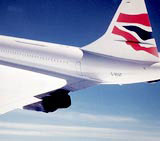Brandishingvalue
As the world economy slows down, Charles Trevail asks who needs brands in times like these?

We all do. Currently, we are surrounding ourselves with brands we hope will lend a sense of security and normality as we struggle to take in what is happening in the world around us.
The 1990s were the decade of brand-everything marketing. Now people feel the power of brands has been diluted by their ubiquity. Disney chief executive officer Michael Eisner, says the word brand is ‘over-used, sterile and unimaginative’. Creating a new, innovative brand has become much harder. The current economic climate means that only effective brands will survive and succeed as people rationalise how they spend their time and money.
Several areas are being hit hard by the downturn. A slowdown in aviation, for example, has been accentuated by the horrific events in the US. The market is polarised, seeing cutbacks for premium brands and more success for companies operating at the other end of the scale – last month, EasyJet announced a 27 per cent rise in passenger numbers on September last year. Low-cost airlines are reaping the benefits of young, powerful brands that have stayed true to their offer.
Premium airlines are increasingly competing head-to-head with the low-cost carriers and most are struggling to win market share and revenue. The exceptions are those that can emphasise key brand attributes, and get within a reasonable ‘price tolerance’. The British Airways brand, for example, offers quality, service, safety and security. By emphasising this, and given less acute differences in price, BA can compete against low-cost carriers: connecting with the target audience at both a rational and emotional level. So the power of the BA brand can act as an insurance policy for the future.
But what of brands we interact with daily? Powerful brands are often those with which people hold some affiliation, that have set themselves in good stead to deal with the threat of recession. Mass-marketed fashion brands are a good example. People bond with brands on an emotional level of which they are often unaware. Nevertheless, recent successes such as Zara and Mango indicate that there is room on the UK high street for good value, quality fashion labels not previously heard of.
An interesting case study is Uniqlo. The brand is not widely known in the UK, but very popular in Japan where the company boasts over 500 shops, annual sales of £1.74bn, and is a household name. Here, it is confidently hoping to tap into the middle market of clothing stores. Economic conditions mean that its brand promise of ‘simplicity, quality and good value’ will not fall on deaf ears.
High street spending, an indicator of recession, is playing a happier tune than some analysts have predicted. The market has slowed slightly since August when figures showed year-on-year growth in spending of 5.6 per cent, but with low interest rates and favourable credit packages widely available, people continue to spend. Troubled times often see a spontaneous increase in consumer spending – investment is not an attractive option, so people go shopping.
In periods of economic gloom sales of lipstick and ice-cream increase. People treat themselves with affordable luxuries and brands are ideally positioned to act as comforters. But some luxury brands are suffering; Rolls-Royce’s production plant, for example, is now only open three days a week.
The automotive industry is usually hit hard in recession: people hang on to their old cars rather than investing in new models or are more likely to buy used cars or cheaper models. In the last recession, safe brands with good residual value such as Volkswagen and Saab coped best. Companies such as Porsche suffered badly at the beginning of the 1990s, their brand embodying wealth, luxury and opulence.
Consumerism becomes more focused in economically unstable periods. Brands that thrive have well-articulated, powerful positioning and appeal to the current consumer mindset. They must reflect people’s needs for familiarity, safety and security. Brands must also innovate constantly. A strong brand will remain true to its core while continually evolving. This is consistent, fundamental brand development; gimmicks and quick-fix marketing campaigns are unlikely to woo cautious consumers in times like these.
Robust brands will continue to do well, even if the economic situation worsens. Companies and products with strong brand propositions will be better placed to weather the potential storm.
It is a time for us in design to lead. Clients need our optimism, creativity and imagination to build and maintain strong and relevant brands – the lifeblood of modern business.
Charles Trevail is chief executive, Europe, Middle East & Africa at FutureBrand
-
Post a comment




